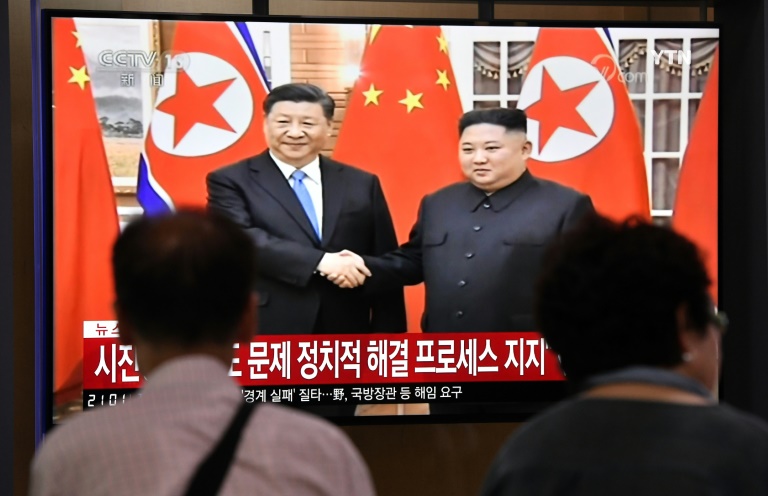Chinese President Xi Jinping and North Korean leader Kim Jong Un have vowed to bring their relations to a “new stage” as the two countries mark the 60th anniversary of a friendship pact, Pyongyang’s state media reported Sunday.
China is North Korea’s longtime ally and economic benefactor, their relationship forged in the bloodshed of the Korean War, when Mao Zedong sent millions of “volunteers” to fight US-led United Nations forces to a standstill.
The two countries signed a treaty of friendship, cooperation and mutual assistance in the event of an armed attack on July 11, 1961, with Mao describing the allies as close as “lips and teeth”.
Relations have fluctuated over the years due to Pyongyang’s growing nuclear ambitions, but with negotiations between North Korea and the US at a standstill, both sides have moved to strengthen their alliance.
“Despite the unprecedentedly complicated international situation in recent years the comradely trust and militant friendship between the DPRK and China get stronger day by day,” Kim wrote in his message to Xi, referring to the North by its official name.
In the message carried by the KCNA news agency, Kim highlighted the role of the pact in “ensuring peace and stability in Asia and the rest of the world now that the hostile forces become more desperate in their challenge and obstructive moves”.
Xi wrote he planned to bring “greater happiness” to the two countries and their people “by steadily leading the relations of friendship and cooperation between the two countries to a new stage,” KCNA said.
– ‘Marriage of convenience’ –
It is a marked contrast to a few years ago, when relations were poor and Kim had yet to meet with Xi since succeeding his father in December 2011.
Kim paid his first visit to China in March 2018 and the two leaders have now met five times.
The exchange of messages is the latest sign of renewed ties between the neighbours, which analysts say is aimed at the United States amid gridlocked nuclear talks between Pyongyang and Washington and worsening US-Beijing tensions.
“It’s a marriage of convenience,” Park Won-gon, professor of North Korean Studies at Ewha Womans University, told AFP.
The two allies’ relations have had discord since the end of the Korean War, he added, and they will “never really trust each other”.
But they need each other to deal with Washington, Park added.
“And the closer they get, the harder it will be to denuclearise North Korea.”











